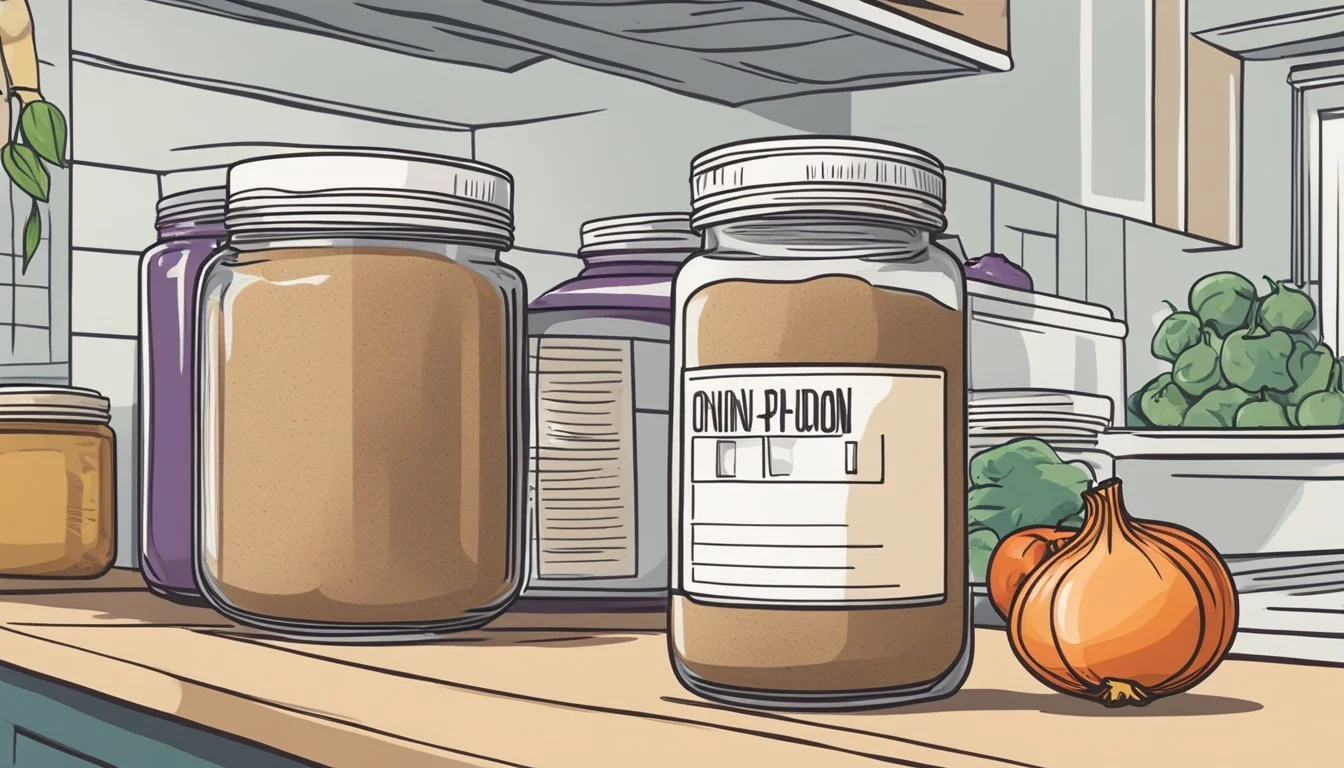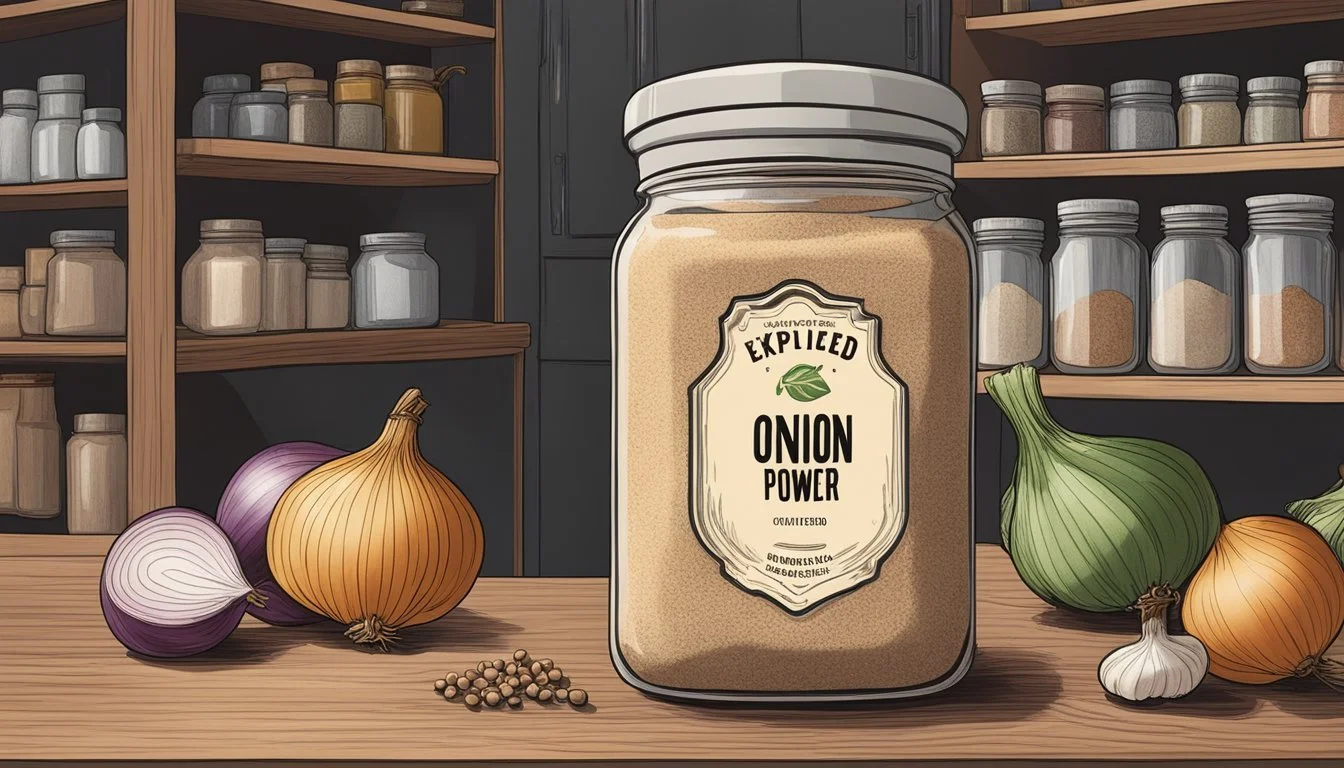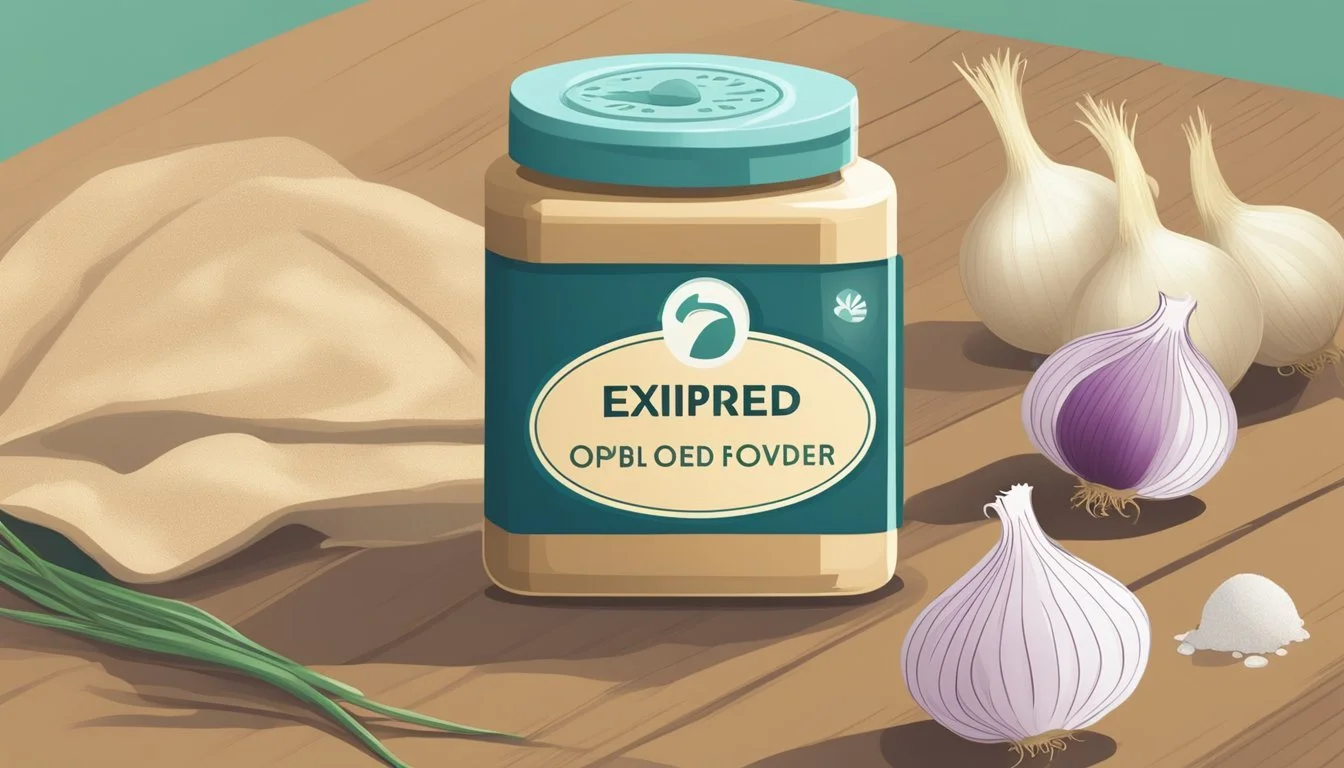Is it Safe to Use Expired Onion Powder?
Understanding Risks and Guidelines
When considering the use of expired onion powder, questions of safety and flavor potency come to the fore. Onion powder is a dehydrated form of onions, ground to a fine consistency, commonly used to flavor a variety of dishes. It is designed for a relatively long shelf-life, with properly stored commercial onion powder remaining usable for up to three or four years. Despite this, the expiration dates on these products still raise concerns among consumers who are unsure if they can use the powder post the printed date.
The primary factor affecting the viability of onion powder is how it’s stored. Keeping it in an airtight container away from moisture, heat, and light preserves its quality over time. While an expiration date is indicative of peak quality, many spices, including onion powder, can be used beyond this date without posing health risks. However, the flavor intensity may diminish, and it becomes pertinent to establish whether there has been any degradation in quality that could affect the taste of culinary creations.
Safety after expiration is not usually the issue with such shelf-stable spices; instead, the potential loss of flavor is what most users will experience. If one notices a lack of aroma or a change in color, this is indicative of the spice losing its desired properties. It is essential to assess these changes, as they determine whether the onion powder will still impart the desired effect in dishes it is used for.
Understanding Onion Powder
Onion powder serves as a versatile and convenient spice derived from dehydrated onions, used extensively to impart flavor to a variety of dishes.
Definition and Production
Onion powder is made from onions that have been dehydrated and then ground into a fine powder. The process typically involves peeling, washing, slicing, and then drying the onions, followed by pulverization. The resultant product is a fine, beige-colored powder that boasts a long shelf life due to the lower moisture content.
Culinary Uses
Onion powder is a fundamental seasoning in culinary arts, valued for its potent flavor and ability to blend well with other spices. It's commonly used in:
Sauces and gravies
Marinades for meats
Dry rubs for cooking
Soup and stew dishes
This spice is also a cornerstone in many pre-made spice mixes and delivers a concentrated onion aroma that fresh onions typically provide but with a more extended shelf stability. Whether a chef is crafting a complex dish or a home cook is seasoning a simple meal, onion powder remains a staple ingredient in kitchens around the world due to its versatile nature.
Expiration Date and Shelf Life
When it comes to the shelf life and expiration date of onion powder, the key factors include the storage conditions and whether the packaging is open. Onion powder's freshness can decline over time, and while it may not spoil like fresh produce, its potency and flavor can diminish.
Shelf Life Factors
Storage Conditions:
Unopened: Onion powder can remain fresh for 3-4 years when the container is sealed and unopened.
Opened: Once opened, it's best used within six months to maintain optimal flavor.
Environmental Impact:
Humidity: Exposure to moisture can lead to clumping and spoilage.
Temperature: It should be stored in a cool, dry place to extend its shelf life.
Light: Direct sunlight can degrade the quality of onion powder.
Identifying Signs of Spoilage
Visual and Textural Changes:
Clumping: Moisture exposure causes onion powder to clump together.
Discoloration: Any change in color could indicate spoilage.
Olfactory Indicators:
Odor: A loss of scent or the presence of an off-smell can signal that onion powder has passed its prime.
In summary, while onion powder does not rot like fresh onions, improper storage or extended time past the best-by date can reduce its effectiveness in cooking.
Proper Storage Practices
To ensure the longevity and quality of onion powder, adhering to proper storage practices is crucial. By controlling environmental factors such as temperature, light, and moisture, one can significantly extend the shelf life of this common kitchen staple.
Optimal Storage Conditions
Onion powder thrives in a cool, dry place away from direct sunlight. A pantry or a kitchen cabinet away from heat sources like ovens or stovetops provides an ideal environment. Consistent temperatures within 60-70°F (15-21°C) help maintain its quality over time. Storing onion powder in a dark place further protects it from degrading.
Preventing Moisture and Clumping
Humidity is a major enemy of onion powder, leading to clumping and potential spoilage. To safeguard against moisture, ensure that onion powder is always kept in a dry place. If the original packaging is not resealable, transferring the powder to an airtight container immediately after opening will help prevent clumping. Desiccants, such as silica gel packets, can also be placed within the storage container to absorb any excess moisture.
Containers and Airtight Solutions
Selecting the right container is pivotal for maintaining freshness. Airtight containers made of glass or food-grade plastic are excellent choices. Glass jars with a tight-sealing lid are preferred as they do not absorb odors and make it easy to monitor the contents without exposing them to air. Should the need arise to keep onion powder for an extended period, storing it in the refrigerator or freezer in a sealed container can further prolong its shelf life. Remember to label the containers with the name and date of storage to track their age accurately.
Safety and Consumption
When it comes to expired onion powder, the primary consideration is whether it remains safe to eat and what potential risks are associated with its consumption after its best-befoe date.
Is It Safe to Consume Expired Onion Powder?
Expired onion powder does not necessarily become unsafe to eat immediately after the expiration date. A key factor in its safety is how it has been stored: ideally, in a cool, dark place in an airtight container to protect it from moisture and light. While the flavor and potency may diminish over time, onion powder can often be used safely beyond its expiration date, especially if it has been stored properly.
Risks of Consuming Spoiled Spices
The consumption of any spoiled food item, including spices like onion powder, carries risks. While it's not common for dried spices to harbor bacteria, their contamination cannot be entirely ruled out. Spoiled onion powder may exhibit signs like clumps, an off odor, or the presence of moisture, which could indicate the growth of bacteria.
Bacteria: Although unlikely, pathogens may grow if moisture was present.
Health: Ingesting spoiled spices can potentially lead to foodborne illnesses.
If the onion powder shows signs of spoilage, it's best to err on the side of caution and discard the product.
Enhancing Longevity and Preservation
To ensure the safe consumption and maintenance of quality, proper preservation methods are essential for prolonging the shelf life of onion powder. Factors such as dryness and storage method significantly contribute to its longevity.
Extending the Life of Onion Powder
To maximize the shelf life of onion powder, storage conditions play a crucial role. One should keep the powder in an airtight container to prevent moisture from clumping the powder. Incorporating desiccant packets within the storage can help absorb any excess moisture, further extending the product's lifespan. For added protection, storing it away from direct sunlight in a cool, dry place can prevent degradation of flavor and quality over time.
Storage checklist for extending onion powder longevity:
Airtight container: to seal out moisture and air.
Desiccant packets: to absorb unwanted humidity.
Cool location: to avoid heat which can degrade quality.
Away from light: to maintain flavor and prevent spoilage due to light exposure.
DIY Solutions for Freshness
For those who prefer homemade onion powder, maintaining freshness requires a bit more attention. Due to the absence of commercial preservatives, it's recommended to store the powder in the refrigeration to slow down any potential spoilage. Wrapping the powder in parchment paper before storing it in an airtight container can also aid in preserving dryness and preventing mold growth.
Key steps for homemade onion powder preservation:
Store in the refrigerator: to keep the powder cool.
Use parchment paper: to help absorb any excess moisture.
Airtight container: essential for maintaining freshness for 6 to 8 months.
Alternatives and Substitutes
When expired onion powder is not safe to use, one can turn to several substitutes that provide a similar flavor profile. Each alternative offers unique characteristics to cater to different cooking needs.
Using Fresh Onions as a Substitute
Fresh onions serve as a direct replacement for onion powder, when the recipe can accommodate additional moisture. It is advisable to use 1/4 to 1/2 cups of finely chopped fresh onions for every teaspoon of onion powder as a standard ratio. The types of onions make a difference; red onions carry a milder taste suitable for fresh dishes, while shallots offer a subtle garlic-like undertone ideal for soups and sauces.
Other Spice Alternatives
Other spices can mimic the flavor of onion without overshadowing a dish. Garlic powder is an excellent stand-in, where 1/2 teaspoon can substitute for a teaspoon of onion powder. Onion flakes and onion salt are more concentrated onion flavor sources, with a half-tablespoon of onion salt equating to a tablespoon of onion powder—though one must adjust the additional salt content in the recipe accordingly. Lists of alternatives include:
Garlic powder: Use at half the amount for a bolder taste.
Onion flakes: Rehydrate before using or add directly for a burst of onion flavor; use double the amount of onion powder.
Onion salt: Halve the quantity due to the added salt and reduce other salt in the recipe.
These substitutes can be utilized effectively in various cooking scenarios where onion powder is typically required.
Frequently Asked Questions (FAQs)
Is it safe to use expired onion powder?
It generally is considered safe to use onion powder even after the expiration date, as long as it has been stored properly and shows no signs of spoilage.
How should onion powder be stored to maintain its quality?
Onion powder should be stored in a cool, dark, and dry environment, away from direct sunlight and heat sources. An airtight container is ideal to prevent moisture and air from affecting its quality.
What are the signs of spoilage in onion powder?
Spoilage can be identified by changes in color, smell, or the presence of clumps. If the onion powder appears to have darkened, developed a strong off-odor, or if there are visible clumps from moisture, it should not be used.
Does the shelf life of onion powder change in different temperatures?
Yes, extreme temperatures can reduce its shelf life. Onion powder should be kept at a stable temperature between 30 to 50 degrees Fahrenheit to maximize its shelf life.
Can exposure to light affect the shelf life of onion powder?
Exposure to light can degrade the quality of onion powder. It's best kept in a cupboard or pantry away from the light to retain its freshness and potency.
Is there a difference in shelf life between store-bought and homemade onion powder?
Store-bought onion powder typically lasts longer — around 3 to 4 years, thanks to commercial drying processes and preservatives. In contrast, homemade onion powder usually lasts 6 to 8 months and may require refrigeration.






